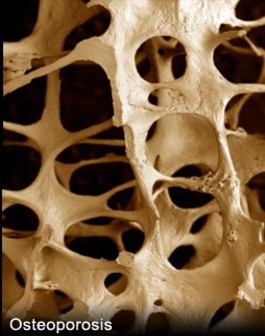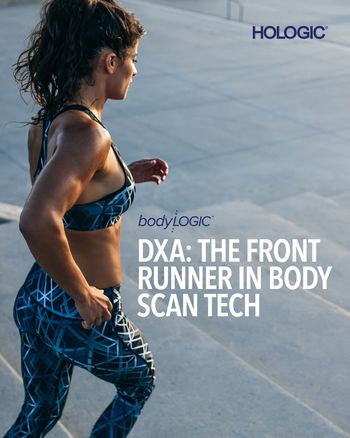
Bone DXA Scan
Our team can accurately measure the thickness and strength of your bones to diagnose osteoporosis and help reduce the risk of future skeletal-related issues.


Development Conference: Diagnosis, prophylaxis, and treatment of osteoporosis, Am J Med 1993;94:646.
As part of our comprehensive in-house services, GoFertility (or CRMRS) offers patients a bone density scan utilizing our high-tech DXA system. The DEXA (dual-energy X-ray absorptiometry) scan measures individuals’ thickness and strength of bones via a dual-energy X-ray beam.
Patients lay comfortably on our flat, open, padded DXA machine with the test only taking about 10 to 20 minutes to complete. The scan is a non-invasive, pain-free and inexpensive way for our team to check for such conditions as osteoporosis. It uses very low levels of X-rays to limit your radiation exposure. In fact, the amount of X-ray radiation is lower than the amount you will get in a flight from New York to Los Angeles.
Once the scan — which typically assesses your spine and hip — is completed, patients’ results are compared against others who are the same age, gender and ethnicity to determine whether they have normal, high or low bone density. Results also include how a patient’s bone density compares to the optimal peak density for his/her gender. This information — combined with risk factors and any previous bone fractures — is used to help us determine individuals’ risk of potential future bone-related issues.

Benefits of Undergoing a Bone Density Scan at CRMRS
Medical experts cite DEXA scans as one of the most effective and low-cost ways to help diagnose osteoporosis, a term used to describe brittle or porous bones. Osteoporosis is a systemic skeletal disease characterized by low bone mass, which in turn increases the risk for bones breaking. Often called the “silent disease” because patients don’t have symptoms until a fracture occurs, osteoporosis is both preventable and treatable. Some of GoFertility’s top recommendations to help with this include:
• Making calcium-rich foods a regular part of your diet
• Consider taking calcium and Vitamin-D supplements
• Exercise regularly, especially weight-bearing exercise
• Reduce drinking soda and coffee
• Consume alcohol in moderation
• Quit smoking
DEXA scans will help detect weak bones to aid in predicting future breakages. They also act as a great marker to showcase whether your bone density is improving, worsening or remaining the same. They evaluate how much fat and muscle mass your body has — and where it’s located — via a body composition scan, which you can learn more about by clicking here. (#Body Composition Scan)
While additional factors such as age, sex and if you’ve previously had a fall contribute to the likelihood of a future bone fracture, a DEXA scan is a great place to start learning more about your bone density health. Estrogen therapy is one medication to combat the onset of osteoporosis. You can learn more about CRMRS’s administration of estrogen replacement by clicking here. (#Hormone Replacement Therapy)
Who is at risk of developing osteoporosis?
According to the National Osteoporosis Foundation, 1 in 2 women and 1 in 4 men aged 50 years and older will break a bone due to osteoporosis. The Centers for Disease Control and Prevention advise women 65 and older to screen for osteoporosis and women 50 to 64 with certain risk factors — like a family history of broken bones — to screen as well. Additional factors that impact the likelihood of osteoporosis development include:
• Chronic intestinal disorders
• A sedentary lifestyle
• Eating disorders
• Approaching or past menopause
• Thin or small-framed individual
• Low calcium intake or milk-intolerant
• On thyroid medication or steroid-based drugs for asthma, arthritis, cancer or organ transplant
• Cigarette smoker or excessive alcohol consumption
• Chronic medical conditions such as rheumatoid arthritis, lupus, diabetes, liver and kidney disease

Preparing for Your Bone Density Scan
Most people don’t need to make changes to their daily routine prior to the administration of a GoFertility bone density assessment. Unless otherwise instructed by our team, patients can eat and drink normally on the day of the exam. We do recommend individuals avoid taking calcium supplements, including multivitamins, at least 24 hours prior to the DEXA scan.
Wear loose, comfortable clothing. Sweat suits and other casual attire without zippers, buttons, grommets, buckles or metal are preferred. While DEXA uses low levels of radiation, let us know if you might be pregnant. We advise avoiding any radiation during pregnancy.
You should not have had a barium study, radioisotope injection, oral/intravenous contrast material from a CT scan or MRI within 7 days of your DXA test. Please note payment is due at the time of the DEXA scan. We have the capability of completing this service whether or not you have insurance, so give us a call at 314-473-1285 to discuss your options.